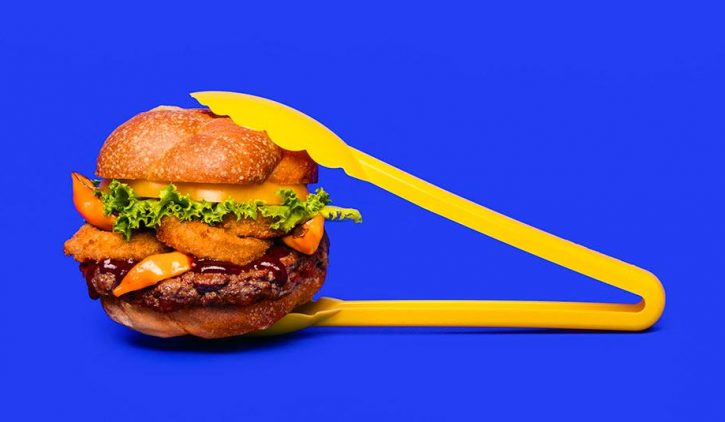
France looks set to prohibit meat terms from being used to describe plant-based foods, with MPs backing a proposal to ban producers of meat substitutes from using phrases like “steak” or “sausage” to describe meat-free products.
Creusois representative Jean-Baptiste Moreau, who is part of French President Emmanuel Macron’s La République En Marche movement, sponsored the move. Moreau, who is himself a farmer, said the decision was based on the European Court of Justice’s 2017 ruling that soya and tofu products cannot be marketed as milk or butter.
In a statement, Moreau described the use of meat or dairy terms in the labelling of plant-based alternatives as “deceptive marketing practices” . On Twitter, he added that it is “important” to combat such “false claims” .
“The terms cheese or steak will be reserved for products of animal origin,” he said.
Backing French farmers
The measure, which was approved by the French National Assembly late last week, was tabled as an amendment to President Macron’s agriculture bill.
Moreau said it aims to restore the “true value” of agricultural products as well as increasing access to “healthier and more sustainable food” for French consumers.
The legislation is part of Macron’s drive to address perceived imbalances in the farm-to-fork supply chain. It is the product of an extensive consultation process with the food sector forming part of the government’s review of the food industry, Etats Généraux de l’Alimentation (EGA).
In order to strengthen the hand of French farmers in negotiations with food makers and retailers, the bill – which will not come into eect until next year – will see producers proposing contractual terms, while prices should be determined by production and market cost indicators. It also includes provision for the introduction of annual re-negotiation clauses for farmers and a stronger mediation service.
Additionally, the legislation proposes two highly-anticipated measures to determine retail pricing: namely lifting suggested retail prices by 10% and limiting price promotions.
Environmental objectives
The French government also hopes to use the bill as a legislative framework to strengthen sustainability initiatives.
Speaking in January, when the initiative was first unveiled, Macron singled out climate as a key issue and stressed that the agricultural sector is both a contributor to and “the first victims of” climate change.
On soil erosion Macron noted “nearly 20%” of French soils “present erosion risks” . In a bid to tackle this, and issues such as biodiversity loss, France is cracking down on the use of chemical pesticides, such as neonicotinoids, and chemical fertilisers, such as glyphosate.
Macron confirmed a three-year deadline for the ban of glyphosate and the latest iteration of the legislation lays the groundwork to extend “the scope of the scope of the ban of neonicotinoids to chemical substances that have identical modes of action.”
The EGA bill has been described as the “first brick” of a more comprehensive road-map focusing on food policy to 2022.
The final draft of the bill will be put to vote during public session in May. Moreau said that further amendments could follow, including measures to deal with the concentration of centralised purchasing in the food sector.
Growing trend in Europe
Pressure has been mounting in Europe for restrictions on the use of meat terms for vegetarian and vegan products.
Following on from the EJC ruling on milk and dairy alternatives, the Dutch Food and Consumer Product Safety Authority (NVWA) ordered food maker the Vegetarian Butcher to change the names of products such as chicken chunks and fish-free tuna on the grounds they are misleading.
Meanwhile, in October last year the German Food Code Commission (DLMBK) closed feedback on its draft proposals on how “meaty names ” such as “schnitzel”, “meatball” or “bratwurst” can be used to describe vegetarian and vegan meat alternatives.
According to the proposal, these and other similar names can still be used to describe vegan and vegetarian meat alternatives on sale in the German market. However, specific terms that name cuts of meat or whole animals cannot be used for the labelling of meat alternatives, according to the DLMBK’s draft document.
‘Conservative’ kick-back
Political pressure comes as a reaction to the significant growth witnessed by the European meat-free space, the European Vegetarian Union (EVU) suggested.
« With veggie product sales rising throughout Europe, several conservative farmer and meat Producer associations are trying to block further successes in any way they can. Traditionally, the agricultural lobby has strong links with MPs in many countries , » EVU head of public affairs Jan Felix Domke told FoodNavigator.
Domke does not believe that concerns over consumer confusion are based on fact.
“It is our position that ‘meaty’ and ‘milky’ names on vegetarian meat and dairy alternatives convey important information on what consumers can expect of a product. Hence, they guide consumers’ purchase decisions in a useful and straightforward way without the danger of deception under the premise that the vegetarian characteristic is communicated clearly on the packaging… and the vegetarian product is sufficiently similar to the meat or dairy products whose denomination it bears.”
Nevertheless, the EVU does not expect restrictions – if and when they are imposed – to slow the growth of Europe’s meat-free sales.
“I don’t think that this will slow down the rapid growth of the meat-free sector. The problems and lack of sustainability of the meat sector are very clear and more and more people are shifting their diets. It would be great if the emerging sector could benefit from the most helpful food labelling rules possible.”
